Edie Melson's Blog, page 379
April 27, 2015
The ABCs of Twitter
by Edie Melson @EdieMelson
 Sometimes we tend to overcomplicate social media, especially Twitter. Today I'd like to share the basics with the ABCs of Twitter.
Sometimes we tend to overcomplicate social media, especially Twitter. Today I'd like to share the basics with the ABCs of Twitter.
A is for Accessibility. It’s important to be easy to find on Twitter. This means your twitter handle needs to be as close to your own name as possible, and your avatar (picture) is recognizable as you.
B is for Bio.Even though your Twitter bio is only 160 characters long, it’s prime real estate. It tells your audience what to expect from your tweets. You can include hashtags, but don’t make them the only thing you list.C is for Connections.The point of Twitter is to connect with other people with similar interests. It’s not your private station to broadcast commercials from. Keep self-promotion to a minimum and you’ll find some valuable relationships through this social media platform.
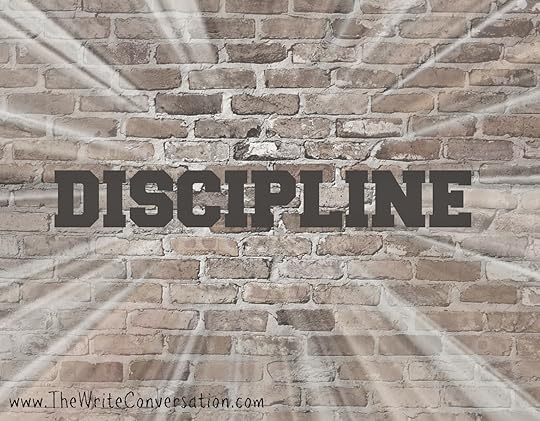 D is for Discipline.Small consistent steps will result in a strong Twitter platform. It’s not enough to share updates several days a month. Instead, set a goal for 4 – 6 updates on 3 – 4 days a week. It won’t take much time, but it will pay huge dividends in visibility and reach.
D is for Discipline.Small consistent steps will result in a strong Twitter platform. It’s not enough to share updates several days a month. Instead, set a goal for 4 – 6 updates on 3 – 4 days a week. It won’t take much time, but it will pay huge dividends in visibility and reach.
E is for Evaluate.Evaluate what you’re sharing on Twitter. Is it valuable to your audience or are you just adding to the noise? I share one of four types of updates:An inspiring quote or Bible verse.A thought provoking question.Something funny.A link to something I (and hopefully my audience) finds helpful.
F is for Focus.Even though I vary the types of updates I share on Twitter, I keep my message (and my Twitter personality) consistent. People who follow me know I post about writing, social media and things for military families.
G is for Grandmother.I’m convinced that my grandmother would have enjoyed social media. It’s a digital neighborhood that she would have understood. There’s a give and take here, and a willingness to courteous and helpful.
 H is for Hashtags.Hashtags are one of the best things about Twitter. Do your best to limit yourself to no more than two (at the very most three) per update. And take time to do a quick search on Google for the best hashtag for the topic you’re tweeting about.
H is for Hashtags.Hashtags are one of the best things about Twitter. Do your best to limit yourself to no more than two (at the very most three) per update. And take time to do a quick search on Google for the best hashtag for the topic you’re tweeting about.
I is for Irritating.Yes, there are some people on Twitter who are irritating. And if they waste my time, I don’t hesitate to unfollow them. I encourage you to do the same.
J is for Jump.Don’t be afraid to jump into the Twitter universe. The easiest way to get started it to dive right in and learn as you go.
K is for Keep On.Don’t expect instant results. Like anything worth doing, growing a Twitter platform takes time (and don’t forget consistency). Don’t get discouraged and give up.
L is for Less is More. Even though Twitter updates can be up to 140 characters long, stop at least 20 characters early. This leaves room for retweets and comments.
M is for Myself.It’s critical that we're honest and genuine on social media. We don’t have to over-share but we do need to be authentic.
N is for Nice.Nice a word that is—in my opinion—underrated. I have never in my life regretted being nice, even when the other person didn’t treat me the same way.
 O is for having an Open Door Policy. Make yourself accessible and visible on Twitter. Don’t protect your tweets, require followers to be approved and refuse to engage in conversations.
O is for having an Open Door Policy. Make yourself accessible and visible on Twitter. Don’t protect your tweets, require followers to be approved and refuse to engage in conversations.
P is for Promotion.Promote others ahead of yourself and you’ll find your Twitter popularity exploding. Promote yourself ahead of others and you’ll always struggle to grow your platform.
Q is for Questions.Asking questions in your Tweets is a great way to get the conversation started. Don’t neglect these types of Twitter updates when you’re planning your social media interactions.
R is for Reciprocate.Twitter etiquette leans heavily on reciprocal relationships. If someone follows me, it’s proper etiquette for me to follow them back. The only reason I don’t is if the appear to be spammers or share updates that I consider inappropriate. Just because they seem to share updates that are far from my topic isn’t reason enough to not follow them back. I’ve found a lot of good connections because I took a chance and followed someone back who appeared—at first—to not share similar interests.
S is for Schedule.Make sure you schedule your daily Tweets. Don’t send them all out at once, but spread them out throughout the day so you reach more of your audience.
 T is for Time.Watch the clock when you’re on social media. There’s a law of diminishing returns that comes into play after about thirty minutes on any social media network—Twitter included. Spend no more than thirty minutes a day and you’ll get the most return on your time investment.
T is for Time.Watch the clock when you’re on social media. There’s a law of diminishing returns that comes into play after about thirty minutes on any social media network—Twitter included. Spend no more than thirty minutes a day and you’ll get the most return on your time investment.
U is for Update.Learn which type of Twitter update to send for each situation. A Tweet is for something you want to share on Twitter.A Retweet is when you repeat what someone else said. It’s not the best etiquette to Retweet a post that mentions you. It’s better to Favorite the Tweet or Reply and say thank you.A Reply is when you answer or comment on a Tweet. It’s proper etiquette to Reply and say thank you when someone mentions you on Twitter.A Direct Message is private message sent to someone through Twitter.
V is for Vacation.Don’t try to work Twitter (or any social media) seven days a week. Instead, give yourself regular breaks. Your tweets will stay fresh and you aren’t as likely to suffer from burnout and overload.
W is for Wisdom.Be wise online. Don’t share your vacation plans in advance or while you’re gone. Don’t make yourself a target by sharing your location when you’re out. And most of all, make certain any photos you share don’t have embedded geocodes, especially if they’re pictures of children. There are people out there who are looking for such carelessness and by not being wise you are raising the risk of becoming a victim.
 X is for X-ray.Learn the bones of a good Twitter update and you’ll never lack for something to say. I use headline writing techniques to compose my tweets and it’s the perfect way to connect with your audience in short bursts of information.
X is for X-ray.Learn the bones of a good Twitter update and you’ll never lack for something to say. I use headline writing techniques to compose my tweets and it’s the perfect way to connect with your audience in short bursts of information.
Y is for Yelling.Writing a Twitter update in all caps is LIKE YELLING. I reserve my use of all caps for the title of a book (since it isn’t possible to italicize in an update).
Z is for Zoo.Yes, at first glance Twitter can seem like a zoo. It can be mistaken for a series of unrelated updates that make no sense to anyone. But take time to get to know your way around and you’ll find a gold mine of relationships and connections waiting for you.
TWEETABLES
Twitter doesn't have to be complicated #SocialMedia expert @EdieMelson shares the ABCs of Twitter (Click to Tweet)
Don't let Twitter confuse you, #SocialMedia expert @EdieMelson shares the ABCs of Twitter (Click to Tweet)
 Sometimes we tend to overcomplicate social media, especially Twitter. Today I'd like to share the basics with the ABCs of Twitter.
Sometimes we tend to overcomplicate social media, especially Twitter. Today I'd like to share the basics with the ABCs of Twitter.A is for Accessibility. It’s important to be easy to find on Twitter. This means your twitter handle needs to be as close to your own name as possible, and your avatar (picture) is recognizable as you.
B is for Bio.Even though your Twitter bio is only 160 characters long, it’s prime real estate. It tells your audience what to expect from your tweets. You can include hashtags, but don’t make them the only thing you list.C is for Connections.The point of Twitter is to connect with other people with similar interests. It’s not your private station to broadcast commercials from. Keep self-promotion to a minimum and you’ll find some valuable relationships through this social media platform.
 D is for Discipline.Small consistent steps will result in a strong Twitter platform. It’s not enough to share updates several days a month. Instead, set a goal for 4 – 6 updates on 3 – 4 days a week. It won’t take much time, but it will pay huge dividends in visibility and reach.
D is for Discipline.Small consistent steps will result in a strong Twitter platform. It’s not enough to share updates several days a month. Instead, set a goal for 4 – 6 updates on 3 – 4 days a week. It won’t take much time, but it will pay huge dividends in visibility and reach. E is for Evaluate.Evaluate what you’re sharing on Twitter. Is it valuable to your audience or are you just adding to the noise? I share one of four types of updates:An inspiring quote or Bible verse.A thought provoking question.Something funny.A link to something I (and hopefully my audience) finds helpful.
F is for Focus.Even though I vary the types of updates I share on Twitter, I keep my message (and my Twitter personality) consistent. People who follow me know I post about writing, social media and things for military families.
G is for Grandmother.I’m convinced that my grandmother would have enjoyed social media. It’s a digital neighborhood that she would have understood. There’s a give and take here, and a willingness to courteous and helpful.
 H is for Hashtags.Hashtags are one of the best things about Twitter. Do your best to limit yourself to no more than two (at the very most three) per update. And take time to do a quick search on Google for the best hashtag for the topic you’re tweeting about.
H is for Hashtags.Hashtags are one of the best things about Twitter. Do your best to limit yourself to no more than two (at the very most three) per update. And take time to do a quick search on Google for the best hashtag for the topic you’re tweeting about.I is for Irritating.Yes, there are some people on Twitter who are irritating. And if they waste my time, I don’t hesitate to unfollow them. I encourage you to do the same.
J is for Jump.Don’t be afraid to jump into the Twitter universe. The easiest way to get started it to dive right in and learn as you go.
K is for Keep On.Don’t expect instant results. Like anything worth doing, growing a Twitter platform takes time (and don’t forget consistency). Don’t get discouraged and give up.
L is for Less is More. Even though Twitter updates can be up to 140 characters long, stop at least 20 characters early. This leaves room for retweets and comments.
M is for Myself.It’s critical that we're honest and genuine on social media. We don’t have to over-share but we do need to be authentic.
N is for Nice.Nice a word that is—in my opinion—underrated. I have never in my life regretted being nice, even when the other person didn’t treat me the same way.
 O is for having an Open Door Policy. Make yourself accessible and visible on Twitter. Don’t protect your tweets, require followers to be approved and refuse to engage in conversations.
O is for having an Open Door Policy. Make yourself accessible and visible on Twitter. Don’t protect your tweets, require followers to be approved and refuse to engage in conversations.P is for Promotion.Promote others ahead of yourself and you’ll find your Twitter popularity exploding. Promote yourself ahead of others and you’ll always struggle to grow your platform.
Q is for Questions.Asking questions in your Tweets is a great way to get the conversation started. Don’t neglect these types of Twitter updates when you’re planning your social media interactions.
R is for Reciprocate.Twitter etiquette leans heavily on reciprocal relationships. If someone follows me, it’s proper etiquette for me to follow them back. The only reason I don’t is if the appear to be spammers or share updates that I consider inappropriate. Just because they seem to share updates that are far from my topic isn’t reason enough to not follow them back. I’ve found a lot of good connections because I took a chance and followed someone back who appeared—at first—to not share similar interests.
S is for Schedule.Make sure you schedule your daily Tweets. Don’t send them all out at once, but spread them out throughout the day so you reach more of your audience.
 T is for Time.Watch the clock when you’re on social media. There’s a law of diminishing returns that comes into play after about thirty minutes on any social media network—Twitter included. Spend no more than thirty minutes a day and you’ll get the most return on your time investment.
T is for Time.Watch the clock when you’re on social media. There’s a law of diminishing returns that comes into play after about thirty minutes on any social media network—Twitter included. Spend no more than thirty minutes a day and you’ll get the most return on your time investment.U is for Update.Learn which type of Twitter update to send for each situation. A Tweet is for something you want to share on Twitter.A Retweet is when you repeat what someone else said. It’s not the best etiquette to Retweet a post that mentions you. It’s better to Favorite the Tweet or Reply and say thank you.A Reply is when you answer or comment on a Tweet. It’s proper etiquette to Reply and say thank you when someone mentions you on Twitter.A Direct Message is private message sent to someone through Twitter.
V is for Vacation.Don’t try to work Twitter (or any social media) seven days a week. Instead, give yourself regular breaks. Your tweets will stay fresh and you aren’t as likely to suffer from burnout and overload.
W is for Wisdom.Be wise online. Don’t share your vacation plans in advance or while you’re gone. Don’t make yourself a target by sharing your location when you’re out. And most of all, make certain any photos you share don’t have embedded geocodes, especially if they’re pictures of children. There are people out there who are looking for such carelessness and by not being wise you are raising the risk of becoming a victim.
 X is for X-ray.Learn the bones of a good Twitter update and you’ll never lack for something to say. I use headline writing techniques to compose my tweets and it’s the perfect way to connect with your audience in short bursts of information.
X is for X-ray.Learn the bones of a good Twitter update and you’ll never lack for something to say. I use headline writing techniques to compose my tweets and it’s the perfect way to connect with your audience in short bursts of information.Y is for Yelling.Writing a Twitter update in all caps is LIKE YELLING. I reserve my use of all caps for the title of a book (since it isn’t possible to italicize in an update).
Z is for Zoo.Yes, at first glance Twitter can seem like a zoo. It can be mistaken for a series of unrelated updates that make no sense to anyone. But take time to get to know your way around and you’ll find a gold mine of relationships and connections waiting for you.
TWEETABLES
Twitter doesn't have to be complicated #SocialMedia expert @EdieMelson shares the ABCs of Twitter (Click to Tweet)
Don't let Twitter confuse you, #SocialMedia expert @EdieMelson shares the ABCs of Twitter (Click to Tweet)
Published on April 27, 2015 01:00
April 26, 2015
Inspiring Ideas to Overcome the Blank Page
Edie here. I'm excited to announce the newest member of The Write Conversation blogging team. I know you all have already been inspired and encouraged by Brenda McGraw and now we'll be hearing from her regularly!
Inspiring Ideas to Overcome the Blank Page
by Brenda McGraw @BrendaMMcGraw
 The achievements of the tomorrowsin our life are many times paralyzed by a lack of inspiration that prevents us from effectively moving forward.
The achievements of the tomorrowsin our life are many times paralyzed by a lack of inspiration that prevents us from effectively moving forward.
We get stuck.
Many times we want to experience the finality of what we are moving towards without taking the steps to get there.
We must somehow get past the silence in our mind that is paralyzing us.
For example, you’ve been asked to write a guest post and all of a sudden you have a blank pagestaring you in the face and no idea where to begin.
Some call it “writer’s block.”
God wants to give you the desires of your heart and He has great methods and designs to get you there.
He may lay before you an idea, a thought, a dream or vision and then He waits to see if you are willing to listen.
God doesn’t want you to fail; He wants you to succeed.
 A Few Inspiring Ideas to Overcome the Blank Page:Read: The Bible, a good book, a blog, an article or even Facebook or Twitter.Remember: To pray, and remember stories that have happened recently.Reveal: Your circumstances to others and how you overcame them.Radio: Turn on music and listen to its words and messages.Resurrect: Look for inspiration in your journal or old article.Ride: Take a car ride and look at the beautiful creation our God has created.Research: Look for statistics and share them.Relate: Your experiences of raising children, caregiving parents or others.Quitting is not an option. Whether we are writing an article or a post, or whether it is something much bigger and God is calling us to take the next step in our calling, sometimes we just have to overcome the paralyzing doubts and trust that we are making a difference with our words and messages. We can do it. His ways are higher than our ways. Trust in the One who gives us the following words:
A Few Inspiring Ideas to Overcome the Blank Page:Read: The Bible, a good book, a blog, an article or even Facebook or Twitter.Remember: To pray, and remember stories that have happened recently.Reveal: Your circumstances to others and how you overcame them.Radio: Turn on music and listen to its words and messages.Resurrect: Look for inspiration in your journal or old article.Ride: Take a car ride and look at the beautiful creation our God has created.Research: Look for statistics and share them.Relate: Your experiences of raising children, caregiving parents or others.Quitting is not an option. Whether we are writing an article or a post, or whether it is something much bigger and God is calling us to take the next step in our calling, sometimes we just have to overcome the paralyzing doubts and trust that we are making a difference with our words and messages. We can do it. His ways are higher than our ways. Trust in the One who gives us the following words:
“For I can do everything through Christ, who gives me strength.” Philippians 4:13
We can do all things though Christ who strengthens us and, may I add, calls us to write and tell our story and HIS.
 Brenda McGraw is an author and speaker who reveals how to discover joy beyond the clutter of life. She draws from her own life experiences in the #1 Amazon Best seller, “Joy Beyond, 28 Days to Finding Joy Beyond the Clutter of Life”. She is the founder of Ask God Today Ministries where she has a team of writers sharing truth and hope with others.
Brenda McGraw is an author and speaker who reveals how to discover joy beyond the clutter of life. She draws from her own life experiences in the #1 Amazon Best seller, “Joy Beyond, 28 Days to Finding Joy Beyond the Clutter of Life”. She is the founder of Ask God Today Ministries where she has a team of writers sharing truth and hope with others.
Brenda currently lives in South Carolina with her husband, Jeff and three of their five children. She is a survivor of breast cancer and a heart attack.. Despite the challenges she has endured, Brenda found peace through her relationship with Jesus Christ.
You can connect with Brenda at:Website - http://www.askgodtoday.com Amazon Author Page: http://www.amazon.com/Brenda-McGraw/e/B00GOIE7AG
Twitter: https://www.twitter.com/BrendaMMcGraw
Inspiring Ideas to Overcome the Blank Page
by Brenda McGraw @BrendaMMcGraw
 The achievements of the tomorrowsin our life are many times paralyzed by a lack of inspiration that prevents us from effectively moving forward.
The achievements of the tomorrowsin our life are many times paralyzed by a lack of inspiration that prevents us from effectively moving forward. We get stuck.
Many times we want to experience the finality of what we are moving towards without taking the steps to get there.
We must somehow get past the silence in our mind that is paralyzing us.
For example, you’ve been asked to write a guest post and all of a sudden you have a blank pagestaring you in the face and no idea where to begin.
Some call it “writer’s block.”
God wants to give you the desires of your heart and He has great methods and designs to get you there.
He may lay before you an idea, a thought, a dream or vision and then He waits to see if you are willing to listen.
God doesn’t want you to fail; He wants you to succeed.
 A Few Inspiring Ideas to Overcome the Blank Page:Read: The Bible, a good book, a blog, an article or even Facebook or Twitter.Remember: To pray, and remember stories that have happened recently.Reveal: Your circumstances to others and how you overcame them.Radio: Turn on music and listen to its words and messages.Resurrect: Look for inspiration in your journal or old article.Ride: Take a car ride and look at the beautiful creation our God has created.Research: Look for statistics and share them.Relate: Your experiences of raising children, caregiving parents or others.Quitting is not an option. Whether we are writing an article or a post, or whether it is something much bigger and God is calling us to take the next step in our calling, sometimes we just have to overcome the paralyzing doubts and trust that we are making a difference with our words and messages. We can do it. His ways are higher than our ways. Trust in the One who gives us the following words:
A Few Inspiring Ideas to Overcome the Blank Page:Read: The Bible, a good book, a blog, an article or even Facebook or Twitter.Remember: To pray, and remember stories that have happened recently.Reveal: Your circumstances to others and how you overcame them.Radio: Turn on music and listen to its words and messages.Resurrect: Look for inspiration in your journal or old article.Ride: Take a car ride and look at the beautiful creation our God has created.Research: Look for statistics and share them.Relate: Your experiences of raising children, caregiving parents or others.Quitting is not an option. Whether we are writing an article or a post, or whether it is something much bigger and God is calling us to take the next step in our calling, sometimes we just have to overcome the paralyzing doubts and trust that we are making a difference with our words and messages. We can do it. His ways are higher than our ways. Trust in the One who gives us the following words:“For I can do everything through Christ, who gives me strength.” Philippians 4:13
We can do all things though Christ who strengthens us and, may I add, calls us to write and tell our story and HIS.
 Brenda McGraw is an author and speaker who reveals how to discover joy beyond the clutter of life. She draws from her own life experiences in the #1 Amazon Best seller, “Joy Beyond, 28 Days to Finding Joy Beyond the Clutter of Life”. She is the founder of Ask God Today Ministries where she has a team of writers sharing truth and hope with others.
Brenda McGraw is an author and speaker who reveals how to discover joy beyond the clutter of life. She draws from her own life experiences in the #1 Amazon Best seller, “Joy Beyond, 28 Days to Finding Joy Beyond the Clutter of Life”. She is the founder of Ask God Today Ministries where she has a team of writers sharing truth and hope with others. Brenda currently lives in South Carolina with her husband, Jeff and three of their five children. She is a survivor of breast cancer and a heart attack.. Despite the challenges she has endured, Brenda found peace through her relationship with Jesus Christ.
You can connect with Brenda at:Website - http://www.askgodtoday.com Amazon Author Page: http://www.amazon.com/Brenda-McGraw/e/B00GOIE7AG
Twitter: https://www.twitter.com/BrendaMMcGraw
Published on April 26, 2015 01:00
April 25, 2015
The Recharging Power of Wasting Time
One thing I've learned as a writer is that it's critical for me to build time into my schedule to waste time. For me, it refuels my creative well.
What do you like to do that might qualify as wasting time?
 "I like this place and could willingly waste my time in it." -William Shakespeare
"I like this place and could willingly waste my time in it." -William Shakespeare
(Photo take in Garden of the Gods, Colorado Springs, CO)
Share your thoughts in the comment section below.
I also invite you to use this image any way you like online. Post it to your blog, share it on Facebook, Twitter, Pinterest, anywhere you'd like. All I ask is that you keep it intact, with my website watermark visible.
Don't forget to join the conversation!Blessings,
Edie
What do you like to do that might qualify as wasting time?
 "I like this place and could willingly waste my time in it." -William Shakespeare
"I like this place and could willingly waste my time in it." -William Shakespeare(Photo take in Garden of the Gods, Colorado Springs, CO)
Share your thoughts in the comment section below.
I also invite you to use this image any way you like online. Post it to your blog, share it on Facebook, Twitter, Pinterest, anywhere you'd like. All I ask is that you keep it intact, with my website watermark visible.
Don't forget to join the conversation!Blessings,
Edie
Published on April 25, 2015 01:00
April 24, 2015
I Want to Write a Book
by Lori Hatcher @LoriHatcher2
 I recently received the following question:
I recently received the following question:
“I know you just finished writing a devotional book, so I'd love to know what your strategy was. Do you have any suggestions on how I could get started?”
As I look back over the years leading up to my books’ publication, I’d like to share three things that have helped me accomplish my dream of becoming a published writer.1. I blog—twice a week—every week.I’m in my fourth year of blogging now, and, by God’s good grace, I haven’t missed a post. Blogging has helped me develop as a writer, network with other bloggers, and connect with potential readers. I’ve learned how to write even when I don’t feel inspired, set and meet deadlines, and communicate succinctly. Blogging also gives me a rich cache of material to develop into speaking presentations, submit to other publications, and compile into books.
Twice-weekly blogging continues to be the single greatest thing I do to move forward in my writing journey.
 2. I submit my work to other publications. Using the
Christian Writer’s Market Guide
, I identify publications that accept devotional pieces and submit my articles and blog posts. When you do this, be sure to go to their websites and familiarize yourself with their submission guidelines. It’s very important to format your work properly. It would be a shame for and editor to discard your submission simply because of improper formatting.
2. I submit my work to other publications. Using the
Christian Writer’s Market Guide
, I identify publications that accept devotional pieces and submit my articles and blog posts. When you do this, be sure to go to their websites and familiarize yourself with their submission guidelines. It’s very important to format your work properly. It would be a shame for and editor to discard your submission simply because of improper formatting.
As publications (online and print) accept your work, you’ll begin building your writing resume. This is a vital part of your future book proposal. As editors become familiar with your work, you’ll become the expert, the go-to person on your particular topic. They’ll begin asking you to write pieces for them, and this will expand your reach even further.
 3. I continue to learn.Learning to write well is a lifelong process. In the past, formal education was the only option for someone learning to write. Today wonderful resources are only a click away. Writing and industry blogs abound, and there’s a YouTube webinar or tutorial for just about everything. I subscribe to several writing blogs (The Write Conversation is one of my favorites) and attend writers’ workshops, conferences, and a monthly critique group.
3. I continue to learn.Learning to write well is a lifelong process. In the past, formal education was the only option for someone learning to write. Today wonderful resources are only a click away. Writing and industry blogs abound, and there’s a YouTube webinar or tutorial for just about everything. I subscribe to several writing blogs (The Write Conversation is one of my favorites) and attend writers’ workshops, conferences, and a monthly critique group.
Through these resources, I’ve developed relationships with other writers and editors. When I’m working on an important article, I’ll sometimes ask one of them to critique or edit my piece. I do the same for them. Having another pair of eyes look over my work and offer suggestions always makes it better. Word Weavers International is a great resource for writing development.
Learning through constructive feedback is necessary in this challenging publication world. As a magazine editor myself, I’ll be the first to admit that editors have little patience for a writer who isn’t open to their input and suggestions.
My best advice to you isn’t to sit down and write a devotional book. Instead, I’d like to challenge you to write a blog post, share it with others, and continue to learn. You’ll grow as a writer, develop relationships that will enrich your life, and expand your understanding of the publishing world.
Thomas Edison once said, “Genius is one percent inspiration and ninety-nine percent perspiration.” Genius or not, writing is hard work. But remember, God didn’t give you your insight, experiences, and abilities to keep them to yourself. Get to work, and may God bless your efforts for his glory.
What suggestions do you have for moving forward in your writing career? Be sure to leave your thoughts in the comments section below.
TWEETABLES
"I want to write a book" - tips from @LoriHatcher2 to help your publishing dreams come true (Click to Tweet)
Writing a book takes commitment & hard work - tips from @LoriHatcher2 on @EdieMelson (Click to Tweet)
 Lori Hatcher is the editor of
Reach Out, Columbia
magazine and the author of two devotional books. Her second,
Hungry for God…Starving for Time, 5-Minute Devotions for Busy Women
released in December. A blogger, writing instructor, and women’s ministry speaker, her goal is to help women connect with God in the craziness of life. You’ll find her pondering the marvelous and the mundane on her blog,
Hungry for God…Starving for Time
. Connect with her on Twitter at @LoriHatcher2 or on Facebook - Hungry for God, Starving for Time.
Lori Hatcher is the editor of
Reach Out, Columbia
magazine and the author of two devotional books. Her second,
Hungry for God…Starving for Time, 5-Minute Devotions for Busy Women
released in December. A blogger, writing instructor, and women’s ministry speaker, her goal is to help women connect with God in the craziness of life. You’ll find her pondering the marvelous and the mundane on her blog,
Hungry for God…Starving for Time
. Connect with her on Twitter at @LoriHatcher2 or on Facebook - Hungry for God, Starving for Time.
 I recently received the following question:
I recently received the following question: “I know you just finished writing a devotional book, so I'd love to know what your strategy was. Do you have any suggestions on how I could get started?”
As I look back over the years leading up to my books’ publication, I’d like to share three things that have helped me accomplish my dream of becoming a published writer.1. I blog—twice a week—every week.I’m in my fourth year of blogging now, and, by God’s good grace, I haven’t missed a post. Blogging has helped me develop as a writer, network with other bloggers, and connect with potential readers. I’ve learned how to write even when I don’t feel inspired, set and meet deadlines, and communicate succinctly. Blogging also gives me a rich cache of material to develop into speaking presentations, submit to other publications, and compile into books.
Twice-weekly blogging continues to be the single greatest thing I do to move forward in my writing journey.
 2. I submit my work to other publications. Using the
Christian Writer’s Market Guide
, I identify publications that accept devotional pieces and submit my articles and blog posts. When you do this, be sure to go to their websites and familiarize yourself with their submission guidelines. It’s very important to format your work properly. It would be a shame for and editor to discard your submission simply because of improper formatting.
2. I submit my work to other publications. Using the
Christian Writer’s Market Guide
, I identify publications that accept devotional pieces and submit my articles and blog posts. When you do this, be sure to go to their websites and familiarize yourself with their submission guidelines. It’s very important to format your work properly. It would be a shame for and editor to discard your submission simply because of improper formatting.As publications (online and print) accept your work, you’ll begin building your writing resume. This is a vital part of your future book proposal. As editors become familiar with your work, you’ll become the expert, the go-to person on your particular topic. They’ll begin asking you to write pieces for them, and this will expand your reach even further.
 3. I continue to learn.Learning to write well is a lifelong process. In the past, formal education was the only option for someone learning to write. Today wonderful resources are only a click away. Writing and industry blogs abound, and there’s a YouTube webinar or tutorial for just about everything. I subscribe to several writing blogs (The Write Conversation is one of my favorites) and attend writers’ workshops, conferences, and a monthly critique group.
3. I continue to learn.Learning to write well is a lifelong process. In the past, formal education was the only option for someone learning to write. Today wonderful resources are only a click away. Writing and industry blogs abound, and there’s a YouTube webinar or tutorial for just about everything. I subscribe to several writing blogs (The Write Conversation is one of my favorites) and attend writers’ workshops, conferences, and a monthly critique group. Through these resources, I’ve developed relationships with other writers and editors. When I’m working on an important article, I’ll sometimes ask one of them to critique or edit my piece. I do the same for them. Having another pair of eyes look over my work and offer suggestions always makes it better. Word Weavers International is a great resource for writing development.
Learning through constructive feedback is necessary in this challenging publication world. As a magazine editor myself, I’ll be the first to admit that editors have little patience for a writer who isn’t open to their input and suggestions.
My best advice to you isn’t to sit down and write a devotional book. Instead, I’d like to challenge you to write a blog post, share it with others, and continue to learn. You’ll grow as a writer, develop relationships that will enrich your life, and expand your understanding of the publishing world.
Thomas Edison once said, “Genius is one percent inspiration and ninety-nine percent perspiration.” Genius or not, writing is hard work. But remember, God didn’t give you your insight, experiences, and abilities to keep them to yourself. Get to work, and may God bless your efforts for his glory.
What suggestions do you have for moving forward in your writing career? Be sure to leave your thoughts in the comments section below.
TWEETABLES
"I want to write a book" - tips from @LoriHatcher2 to help your publishing dreams come true (Click to Tweet)
Writing a book takes commitment & hard work - tips from @LoriHatcher2 on @EdieMelson (Click to Tweet)
 Lori Hatcher is the editor of
Reach Out, Columbia
magazine and the author of two devotional books. Her second,
Hungry for God…Starving for Time, 5-Minute Devotions for Busy Women
released in December. A blogger, writing instructor, and women’s ministry speaker, her goal is to help women connect with God in the craziness of life. You’ll find her pondering the marvelous and the mundane on her blog,
Hungry for God…Starving for Time
. Connect with her on Twitter at @LoriHatcher2 or on Facebook - Hungry for God, Starving for Time.
Lori Hatcher is the editor of
Reach Out, Columbia
magazine and the author of two devotional books. Her second,
Hungry for God…Starving for Time, 5-Minute Devotions for Busy Women
released in December. A blogger, writing instructor, and women’s ministry speaker, her goal is to help women connect with God in the craziness of life. You’ll find her pondering the marvelous and the mundane on her blog,
Hungry for God…Starving for Time
. Connect with her on Twitter at @LoriHatcher2 or on Facebook - Hungry for God, Starving for Time.
Published on April 24, 2015 01:00
April 23, 2015
7 Traits of Remarkable Writers
by Henry McLaughlin @RiverBendSagas
 Over the course of my writing time, over ten years now, I’ve met many writers, read many books, and studied authors. And I studied more than how they applied the craft to their stories. I studied how they applied themselves to their writing.
Over the course of my writing time, over ten years now, I’ve met many writers, read many books, and studied authors. And I studied more than how they applied the craft to their stories. I studied how they applied themselves to their writing.
The truly remarkable writers I’ve met all seem to have character or personality traits that make them stand out. And this doesn’t apply to only published authors. Many aspiring writers display these same traits as they continue to write and pursue publication.
Patient Remarkable writers know how to be patient.Patience is not simply waiting. Patience is striving during the waiting. Remarkable writers recognize the road to learning the craft and to publication can be long and filled with potholes and construction delays. They recognize their responsibility to keep writing, to create the best stories they can, to cling to their dreams on being writers, knowing God will open the right door at the right time. They prepare themselves to walk through it when it does.
Remarkable writers know how to be patient.Patience is not simply waiting. Patience is striving during the waiting. Remarkable writers recognize the road to learning the craft and to publication can be long and filled with potholes and construction delays. They recognize their responsibility to keep writing, to create the best stories they can, to cling to their dreams on being writers, knowing God will open the right door at the right time. They prepare themselves to walk through it when it does.
FaithfulThey are faithful to their calling. They are faithful in their relationship with God. They are faithful to their families, fellow writers, and critique groups.
LearnersThey never stop learning no matter how much success they’ve had. They read and re-read books on writing. They work with critique partners. They attend conferences, seminars, and webinars. Not just to network but to sit in workshops and take notes and ask questions. To be at a conference and have writers like Randy Ingermanson and Liz Curtis Higgs in the same workshop, learning just as I am, is inspiring.
 Remarkable writers are givers.GiversI’ve yet to meet a remarkable writer who was not a giver. They give of their time and talent to teach workshops, to mentor and coach small groups or individual writers. They pay forward what others have invested in them.
Remarkable writers are givers.GiversI’ve yet to meet a remarkable writer who was not a giver. They give of their time and talent to teach workshops, to mentor and coach small groups or individual writers. They pay forward what others have invested in them.
ReadersThey read. Voraciously. Their genre. Other genres. Books on writing. They read to learn, to find some nugget, no matter how small, that they can apply to their own writing.
Purposeful Story TellersTheir stories do more than entertain. They carry out their calling to write stories inspired by God. They explore themes and issues. They take ordinary characters and put them in extraordinary circumstance to how us how to live Christ-centered lives and confront the problems we face in the real world.
Can you think of other traits you’ve seen in remarkable writers? Do you see any of these traits in yourself? Be sure to share your thoughts in the comments section below.
TWEETABLES7 Traits of Remarkable writers - via Henry McLaughlin, @RiverBendSagas on @EdieMelson (Click to Tweet)
Becoming a remarkable writer takes more than learning how to write - @RiverBendSagas (Click to Tweet)
 Henry’s debut novel, Journey to Riverbend, won the 2009 Operation First Novel contest. He serves as Associate Director of North Texas Christian Writers. Henry edits novels, leads critique groups, and teaches at conferences and workshops. He enjoys mentoring and coaching individual writers. Connect with Henry on his blog, Twitter and Facebook.
Henry’s debut novel, Journey to Riverbend, won the 2009 Operation First Novel contest. He serves as Associate Director of North Texas Christian Writers. Henry edits novels, leads critique groups, and teaches at conferences and workshops. He enjoys mentoring and coaching individual writers. Connect with Henry on his blog, Twitter and Facebook.
 Over the course of my writing time, over ten years now, I’ve met many writers, read many books, and studied authors. And I studied more than how they applied the craft to their stories. I studied how they applied themselves to their writing.
Over the course of my writing time, over ten years now, I’ve met many writers, read many books, and studied authors. And I studied more than how they applied the craft to their stories. I studied how they applied themselves to their writing.The truly remarkable writers I’ve met all seem to have character or personality traits that make them stand out. And this doesn’t apply to only published authors. Many aspiring writers display these same traits as they continue to write and pursue publication.
Patient
 Remarkable writers know how to be patient.Patience is not simply waiting. Patience is striving during the waiting. Remarkable writers recognize the road to learning the craft and to publication can be long and filled with potholes and construction delays. They recognize their responsibility to keep writing, to create the best stories they can, to cling to their dreams on being writers, knowing God will open the right door at the right time. They prepare themselves to walk through it when it does.
Remarkable writers know how to be patient.Patience is not simply waiting. Patience is striving during the waiting. Remarkable writers recognize the road to learning the craft and to publication can be long and filled with potholes and construction delays. They recognize their responsibility to keep writing, to create the best stories they can, to cling to their dreams on being writers, knowing God will open the right door at the right time. They prepare themselves to walk through it when it does.FaithfulThey are faithful to their calling. They are faithful in their relationship with God. They are faithful to their families, fellow writers, and critique groups.
LearnersThey never stop learning no matter how much success they’ve had. They read and re-read books on writing. They work with critique partners. They attend conferences, seminars, and webinars. Not just to network but to sit in workshops and take notes and ask questions. To be at a conference and have writers like Randy Ingermanson and Liz Curtis Higgs in the same workshop, learning just as I am, is inspiring.
 Remarkable writers are givers.GiversI’ve yet to meet a remarkable writer who was not a giver. They give of their time and talent to teach workshops, to mentor and coach small groups or individual writers. They pay forward what others have invested in them.
Remarkable writers are givers.GiversI’ve yet to meet a remarkable writer who was not a giver. They give of their time and talent to teach workshops, to mentor and coach small groups or individual writers. They pay forward what others have invested in them. ReadersThey read. Voraciously. Their genre. Other genres. Books on writing. They read to learn, to find some nugget, no matter how small, that they can apply to their own writing.
Purposeful Story TellersTheir stories do more than entertain. They carry out their calling to write stories inspired by God. They explore themes and issues. They take ordinary characters and put them in extraordinary circumstance to how us how to live Christ-centered lives and confront the problems we face in the real world.
Can you think of other traits you’ve seen in remarkable writers? Do you see any of these traits in yourself? Be sure to share your thoughts in the comments section below.
TWEETABLES7 Traits of Remarkable writers - via Henry McLaughlin, @RiverBendSagas on @EdieMelson (Click to Tweet)
Becoming a remarkable writer takes more than learning how to write - @RiverBendSagas (Click to Tweet)
 Henry’s debut novel, Journey to Riverbend, won the 2009 Operation First Novel contest. He serves as Associate Director of North Texas Christian Writers. Henry edits novels, leads critique groups, and teaches at conferences and workshops. He enjoys mentoring and coaching individual writers. Connect with Henry on his blog, Twitter and Facebook.
Henry’s debut novel, Journey to Riverbend, won the 2009 Operation First Novel contest. He serves as Associate Director of North Texas Christian Writers. Henry edits novels, leads critique groups, and teaches at conferences and workshops. He enjoys mentoring and coaching individual writers. Connect with Henry on his blog, Twitter and Facebook.
Published on April 23, 2015 01:00
April 22, 2015
Phantom, the White Arabian Stallion
by DiAnn Mills @DiAnnMills
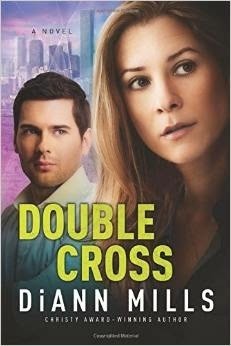 Laurel in
Double Cross
escapes the stress of her FBI work by spending time with Phantom, her white Arabian stallion. We all need a way to keep our stress level low. For some it’s exercise, prayer, or quality time with family and friends. But if you’re lucky enough to have a horse, you understand the joy of loving and caring for a magnificent animal. I had a horse growing up, and it not only instilled responsibility but also gave me hours of unforgettable pleasure. The name Phantom signified the regret and unforgiveness of Laurel’s past. She dealt with a tragic childhood and rebellious teen years that followed her into her adult life. Those happenings stalked her like a phantom. Odd, she’d call her beloved horse what she feared most. Perhaps this was a subconscious way to overcome that which she could not change. I chose a white Arabian stallion for Laurel to show her strength in handling a powerful animal and to pave the way for how she’d experience growth and change in the story.
Laurel in
Double Cross
escapes the stress of her FBI work by spending time with Phantom, her white Arabian stallion. We all need a way to keep our stress level low. For some it’s exercise, prayer, or quality time with family and friends. But if you’re lucky enough to have a horse, you understand the joy of loving and caring for a magnificent animal. I had a horse growing up, and it not only instilled responsibility but also gave me hours of unforgettable pleasure. The name Phantom signified the regret and unforgiveness of Laurel’s past. She dealt with a tragic childhood and rebellious teen years that followed her into her adult life. Those happenings stalked her like a phantom. Odd, she’d call her beloved horse what she feared most. Perhaps this was a subconscious way to overcome that which she could not change. I chose a white Arabian stallion for Laurel to show her strength in handling a powerful animal and to pave the way for how she’d experience growth and change in the story.
Five characteristics of an Arabian impressed me: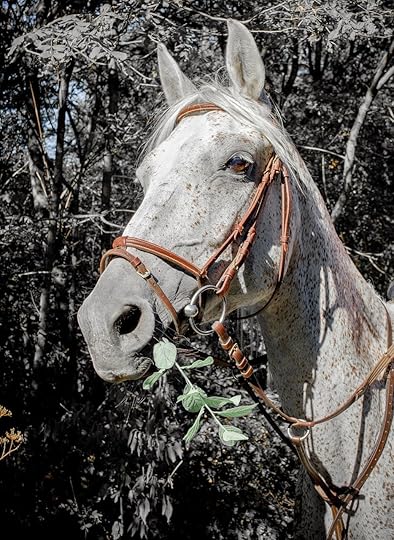 Oldest breed of horse, dating back 4500 years, beginning with the Bedouins of the Arabian desert. “ . . . their horses were strong, with deep chests, straight legs, large joints and good lungs to carry them across large stretches of their desert homeland.” http://www.arabianhorses.orgArabian horses are noted for their endurance. This trait paralleled with my heroine’s need to endure the pressures and hardships of her life to become a survivor.This breed can be affectionate, and I wanted that characteristic for my heroine. Phantom missed Laurel when she couldn’t get away to the stables, and she missed him.Arabians are noted as intelligent, sensitive, and alert. I needed my heroine’s horse to exhibit some of her traits and save her from a sniper.Spirit! Arabian horses have carried kings and warriors into battle. They are a proud breed and carry their heads and tales high. My heroine had spirit to not give up on herself or the crime that needed solved.
Oldest breed of horse, dating back 4500 years, beginning with the Bedouins of the Arabian desert. “ . . . their horses were strong, with deep chests, straight legs, large joints and good lungs to carry them across large stretches of their desert homeland.” http://www.arabianhorses.orgArabian horses are noted for their endurance. This trait paralleled with my heroine’s need to endure the pressures and hardships of her life to become a survivor.This breed can be affectionate, and I wanted that characteristic for my heroine. Phantom missed Laurel when she couldn’t get away to the stables, and she missed him.Arabians are noted as intelligent, sensitive, and alert. I needed my heroine’s horse to exhibit some of her traits and save her from a sniper.Spirit! Arabian horses have carried kings and warriors into battle. They are a proud breed and carry their heads and tales high. My heroine had spirit to not give up on herself or the crime that needed solved.
These magnificent animals have stolen the hearts of people for thousands of years. From war horses to racing champions to prized pets, Arabians are and well remain a part of man’s history. Are you a horse lover? Leave a comment below and be entered in a random drawing for a personalized copy of my new release Double Cross.
TWEETABLE
Bestselling author @DiAnnMills shares insight into her newest book + giveaway on @EdieMelson (Click to Tweet)
 DiAnn Mills is a bestselling author who believes her readers should expect an adventure. She combines unforgettable characters with unpredictable plots to create action-packed, suspense-filled novels.
DiAnn Mills is a bestselling author who believes her readers should expect an adventure. She combines unforgettable characters with unpredictable plots to create action-packed, suspense-filled novels.
Her titles have appeared on the CBA and ECPA bestseller lists; won two Christy Awards; and been finalists for the RITA, Daphne Du Maurier, Inspirational Readers’ Choice, and Carol award contests. Library Journal presented her with a Best Books 2014: Genre Fiction award in the Christian Fiction category for Firewall.
DiAnn is a founding board member of the American Christian Fiction Writers; the 2015 president of the Romance Writers of America’s Faith, Hope, & Love chapter; a member of Advanced Writers and Speakers Association, and International Thriller Writers. She speaks to various groups and teaches writing workshops around the country. She and her husband live in sunny Houston, Texas.
DiAnn is very active online and would love to connect with readers on any of the social media platforms listed at www.diannmills.com.
 Laurel in
Double Cross
escapes the stress of her FBI work by spending time with Phantom, her white Arabian stallion. We all need a way to keep our stress level low. For some it’s exercise, prayer, or quality time with family and friends. But if you’re lucky enough to have a horse, you understand the joy of loving and caring for a magnificent animal. I had a horse growing up, and it not only instilled responsibility but also gave me hours of unforgettable pleasure. The name Phantom signified the regret and unforgiveness of Laurel’s past. She dealt with a tragic childhood and rebellious teen years that followed her into her adult life. Those happenings stalked her like a phantom. Odd, she’d call her beloved horse what she feared most. Perhaps this was a subconscious way to overcome that which she could not change. I chose a white Arabian stallion for Laurel to show her strength in handling a powerful animal and to pave the way for how she’d experience growth and change in the story.
Laurel in
Double Cross
escapes the stress of her FBI work by spending time with Phantom, her white Arabian stallion. We all need a way to keep our stress level low. For some it’s exercise, prayer, or quality time with family and friends. But if you’re lucky enough to have a horse, you understand the joy of loving and caring for a magnificent animal. I had a horse growing up, and it not only instilled responsibility but also gave me hours of unforgettable pleasure. The name Phantom signified the regret and unforgiveness of Laurel’s past. She dealt with a tragic childhood and rebellious teen years that followed her into her adult life. Those happenings stalked her like a phantom. Odd, she’d call her beloved horse what she feared most. Perhaps this was a subconscious way to overcome that which she could not change. I chose a white Arabian stallion for Laurel to show her strength in handling a powerful animal and to pave the way for how she’d experience growth and change in the story. Five characteristics of an Arabian impressed me:
 Oldest breed of horse, dating back 4500 years, beginning with the Bedouins of the Arabian desert. “ . . . their horses were strong, with deep chests, straight legs, large joints and good lungs to carry them across large stretches of their desert homeland.” http://www.arabianhorses.orgArabian horses are noted for their endurance. This trait paralleled with my heroine’s need to endure the pressures and hardships of her life to become a survivor.This breed can be affectionate, and I wanted that characteristic for my heroine. Phantom missed Laurel when she couldn’t get away to the stables, and she missed him.Arabians are noted as intelligent, sensitive, and alert. I needed my heroine’s horse to exhibit some of her traits and save her from a sniper.Spirit! Arabian horses have carried kings and warriors into battle. They are a proud breed and carry their heads and tales high. My heroine had spirit to not give up on herself or the crime that needed solved.
Oldest breed of horse, dating back 4500 years, beginning with the Bedouins of the Arabian desert. “ . . . their horses were strong, with deep chests, straight legs, large joints and good lungs to carry them across large stretches of their desert homeland.” http://www.arabianhorses.orgArabian horses are noted for their endurance. This trait paralleled with my heroine’s need to endure the pressures and hardships of her life to become a survivor.This breed can be affectionate, and I wanted that characteristic for my heroine. Phantom missed Laurel when she couldn’t get away to the stables, and she missed him.Arabians are noted as intelligent, sensitive, and alert. I needed my heroine’s horse to exhibit some of her traits and save her from a sniper.Spirit! Arabian horses have carried kings and warriors into battle. They are a proud breed and carry their heads and tales high. My heroine had spirit to not give up on herself or the crime that needed solved.These magnificent animals have stolen the hearts of people for thousands of years. From war horses to racing champions to prized pets, Arabians are and well remain a part of man’s history. Are you a horse lover? Leave a comment below and be entered in a random drawing for a personalized copy of my new release Double Cross.
TWEETABLE
Bestselling author @DiAnnMills shares insight into her newest book + giveaway on @EdieMelson (Click to Tweet)
 DiAnn Mills is a bestselling author who believes her readers should expect an adventure. She combines unforgettable characters with unpredictable plots to create action-packed, suspense-filled novels.
DiAnn Mills is a bestselling author who believes her readers should expect an adventure. She combines unforgettable characters with unpredictable plots to create action-packed, suspense-filled novels. Her titles have appeared on the CBA and ECPA bestseller lists; won two Christy Awards; and been finalists for the RITA, Daphne Du Maurier, Inspirational Readers’ Choice, and Carol award contests. Library Journal presented her with a Best Books 2014: Genre Fiction award in the Christian Fiction category for Firewall.
DiAnn is a founding board member of the American Christian Fiction Writers; the 2015 president of the Romance Writers of America’s Faith, Hope, & Love chapter; a member of Advanced Writers and Speakers Association, and International Thriller Writers. She speaks to various groups and teaches writing workshops around the country. She and her husband live in sunny Houston, Texas.
DiAnn is very active online and would love to connect with readers on any of the social media platforms listed at www.diannmills.com.
Published on April 22, 2015 01:00
April 21, 2015
The Day I Decided to Keep Writing
by Lucinda Secrest McDowell
 “I’m not impressed and won’t be sending this manuscript to any publisher. Honestly, no one wants this book, so you may as well start over on something else,” my literary agent said during our appointment at the annual booksellers convention.
“I’m not impressed and won’t be sending this manuscript to any publisher. Honestly, no one wants this book, so you may as well start over on something else,” my literary agent said during our appointment at the annual booksellers convention.
I was shattered.
I knew about rejections. I had begun my career writing for magazines and had thick files of rejection letters which had only spurred me on to try the next publisher. But now, as an established book author, I was discouraged. Why not just quit? It’s not like anyone would miss a book I haven’t even written!
Yet, I had always tried to live the words “Commit everything you do to the Lord. Trust Him, and He will help you.” (Psalm 37.5) So, as I trudged through the airport in the wee hours of the next morning I silently offered all my writing back to God—praying for guidance and provision.
 I even managed to be friendly to the weary traveler in the next chair in the gate area. Even before I found out she was an editor at a large publishing house.
I even managed to be friendly to the weary traveler in the next chair in the gate area. Even before I found out she was an editor at a large publishing house.
“I’m just curious, as you leave the convention, was there one book idea you had hoped to find from an author?” I said in my most hesitant manner.
“Well, my boss was interested in something that addresses the whole baby-boomers-reaching-middle-age idea. We think that might find a good audience,” she replied.
Did I hear her correctly? Had she really just regretted not being offered something on the very subject of the book proposal now gathering dust in my briefcase?
“Uh, well, I happen to have a book proposal on that very subject. Would you be willing to look it over and see if it might fit your needs?” I stammered.
 The startled editor graciously took my manuscript. One year later that new book was published.
"30 Ways to Embrace Life - Wise Women Share Their Secrets".
From absolute rejection to acceptance in a series of events that could only have been orchestrated by God!
The startled editor graciously took my manuscript. One year later that new book was published.
"30 Ways to Embrace Life - Wise Women Share Their Secrets".
From absolute rejection to acceptance in a series of events that could only have been orchestrated by God!
What does it mean to commit everything we do to the Lord?
This simple act of relinquishment means to entrust or put in charge. It also involves the harder internal process of being willing to accept a possible ‘no’ or being redirected on a different path.
I often think back to that very low point in my writing career.
What if I had continued to pout and retreat to a corner seat in the airport waiting gate, ignoring everyone around me? What if I had simply taken my current agent’s advice or stopped writing altogether?
Instead, I chose to prayerfully continue to commit everything to God – the One who called me to write in the first place – and to believe that He would indeed help me. Life is too short to invest in work that doesn’t have God’s hand all over it. Can I truly surrender all to Him?
That’s the place where He wants me to be.
How have you had to remake the decision to keep writing? Be sure to share your insight in the comments section below.
“Lord, I believe in You: increase my faith. I trust in You: strengthen my trust. I love You: let me love You more and more… Guide me by Your wisdom, correct me with Your justice, comfort me with Your mercy, protect me with Your power. I offer You, Lord, my thoughts: to be fixed on You; my words: to have You for their theme; my actions: to reflect my love for You…. I want to do what You ask of me: in the way You ask, for as long as You ask, because You ask it. Amen.” (Clement, 95 AD)
TWEETABLESThe Day I Decided to Keep #Writing - via @LucindaSMcDowel on @EdieMelson (Click to Tweet)
When #writing rejection comes, faith is necessary to keep moving forward - via @LucindaSMcDowel (Click to Tweet)
 Lucinda Secrest McDowell, M.T.S., is the author of 11 books, contributing author to 25 books, and has published in more than 50 magazines. A graduate of Gordon-Conwell Theological Seminary and Furman University, she studied at the Wheaton Graduate School of Communication and served as Communications Specialist for the Lausanne Committee for World Evangelization (Thailand) and Editor for Billy Graham’s International Conference for Itinerant Evangelists (Netherlands). A member of Advanced Writers and Speakers Association (AWSA), she has received “Writer of the Year” awards from both Mt. Hermon and Blue Ridge Writers Conferences. Cindy speaks internationally through her ministry “Encouraging Words” and co-directs the New England Christian Writers Retreat. Known for her ability to convey deep truth in practical and winsome ways, she writes from “Sunnyside” cottage in New England. Visit her online at www.EncouragingWords.net
Lucinda Secrest McDowell, M.T.S., is the author of 11 books, contributing author to 25 books, and has published in more than 50 magazines. A graduate of Gordon-Conwell Theological Seminary and Furman University, she studied at the Wheaton Graduate School of Communication and served as Communications Specialist for the Lausanne Committee for World Evangelization (Thailand) and Editor for Billy Graham’s International Conference for Itinerant Evangelists (Netherlands). A member of Advanced Writers and Speakers Association (AWSA), she has received “Writer of the Year” awards from both Mt. Hermon and Blue Ridge Writers Conferences. Cindy speaks internationally through her ministry “Encouraging Words” and co-directs the New England Christian Writers Retreat. Known for her ability to convey deep truth in practical and winsome ways, she writes from “Sunnyside” cottage in New England. Visit her online at www.EncouragingWords.net
Links www.NewEnglandChristianWritersRetreat.com
Blog/website www.EncouragingWords.net
 “I’m not impressed and won’t be sending this manuscript to any publisher. Honestly, no one wants this book, so you may as well start over on something else,” my literary agent said during our appointment at the annual booksellers convention.
“I’m not impressed and won’t be sending this manuscript to any publisher. Honestly, no one wants this book, so you may as well start over on something else,” my literary agent said during our appointment at the annual booksellers convention.I was shattered.
I knew about rejections. I had begun my career writing for magazines and had thick files of rejection letters which had only spurred me on to try the next publisher. But now, as an established book author, I was discouraged. Why not just quit? It’s not like anyone would miss a book I haven’t even written!
Yet, I had always tried to live the words “Commit everything you do to the Lord. Trust Him, and He will help you.” (Psalm 37.5) So, as I trudged through the airport in the wee hours of the next morning I silently offered all my writing back to God—praying for guidance and provision.
 I even managed to be friendly to the weary traveler in the next chair in the gate area. Even before I found out she was an editor at a large publishing house.
I even managed to be friendly to the weary traveler in the next chair in the gate area. Even before I found out she was an editor at a large publishing house.“I’m just curious, as you leave the convention, was there one book idea you had hoped to find from an author?” I said in my most hesitant manner.
“Well, my boss was interested in something that addresses the whole baby-boomers-reaching-middle-age idea. We think that might find a good audience,” she replied.
Did I hear her correctly? Had she really just regretted not being offered something on the very subject of the book proposal now gathering dust in my briefcase?
“Uh, well, I happen to have a book proposal on that very subject. Would you be willing to look it over and see if it might fit your needs?” I stammered.
 The startled editor graciously took my manuscript. One year later that new book was published.
"30 Ways to Embrace Life - Wise Women Share Their Secrets".
From absolute rejection to acceptance in a series of events that could only have been orchestrated by God!
The startled editor graciously took my manuscript. One year later that new book was published.
"30 Ways to Embrace Life - Wise Women Share Their Secrets".
From absolute rejection to acceptance in a series of events that could only have been orchestrated by God!What does it mean to commit everything we do to the Lord?
This simple act of relinquishment means to entrust or put in charge. It also involves the harder internal process of being willing to accept a possible ‘no’ or being redirected on a different path.
I often think back to that very low point in my writing career.
What if I had continued to pout and retreat to a corner seat in the airport waiting gate, ignoring everyone around me? What if I had simply taken my current agent’s advice or stopped writing altogether?
Instead, I chose to prayerfully continue to commit everything to God – the One who called me to write in the first place – and to believe that He would indeed help me. Life is too short to invest in work that doesn’t have God’s hand all over it. Can I truly surrender all to Him?
That’s the place where He wants me to be.
How have you had to remake the decision to keep writing? Be sure to share your insight in the comments section below.
“Lord, I believe in You: increase my faith. I trust in You: strengthen my trust. I love You: let me love You more and more… Guide me by Your wisdom, correct me with Your justice, comfort me with Your mercy, protect me with Your power. I offer You, Lord, my thoughts: to be fixed on You; my words: to have You for their theme; my actions: to reflect my love for You…. I want to do what You ask of me: in the way You ask, for as long as You ask, because You ask it. Amen.” (Clement, 95 AD)
TWEETABLESThe Day I Decided to Keep #Writing - via @LucindaSMcDowel on @EdieMelson (Click to Tweet)
When #writing rejection comes, faith is necessary to keep moving forward - via @LucindaSMcDowel (Click to Tweet)
 Lucinda Secrest McDowell, M.T.S., is the author of 11 books, contributing author to 25 books, and has published in more than 50 magazines. A graduate of Gordon-Conwell Theological Seminary and Furman University, she studied at the Wheaton Graduate School of Communication and served as Communications Specialist for the Lausanne Committee for World Evangelization (Thailand) and Editor for Billy Graham’s International Conference for Itinerant Evangelists (Netherlands). A member of Advanced Writers and Speakers Association (AWSA), she has received “Writer of the Year” awards from both Mt. Hermon and Blue Ridge Writers Conferences. Cindy speaks internationally through her ministry “Encouraging Words” and co-directs the New England Christian Writers Retreat. Known for her ability to convey deep truth in practical and winsome ways, she writes from “Sunnyside” cottage in New England. Visit her online at www.EncouragingWords.net
Lucinda Secrest McDowell, M.T.S., is the author of 11 books, contributing author to 25 books, and has published in more than 50 magazines. A graduate of Gordon-Conwell Theological Seminary and Furman University, she studied at the Wheaton Graduate School of Communication and served as Communications Specialist for the Lausanne Committee for World Evangelization (Thailand) and Editor for Billy Graham’s International Conference for Itinerant Evangelists (Netherlands). A member of Advanced Writers and Speakers Association (AWSA), she has received “Writer of the Year” awards from both Mt. Hermon and Blue Ridge Writers Conferences. Cindy speaks internationally through her ministry “Encouraging Words” and co-directs the New England Christian Writers Retreat. Known for her ability to convey deep truth in practical and winsome ways, she writes from “Sunnyside” cottage in New England. Visit her online at www.EncouragingWords.net Links www.NewEnglandChristianWritersRetreat.com
Blog/website www.EncouragingWords.net
Published on April 21, 2015 01:00
April 20, 2015
Get Your Blog Found with Proper Labels & Tags
by Edie Melson @EdieMelson
 I get the opportunity to evaluate a lot of blogs, from writers I meet with at conferences to clients. And they all have many of the same questions. One of the most common is what are some tips to help their blogs get found.
I get the opportunity to evaluate a lot of blogs, from writers I meet with at conferences to clients. And they all have many of the same questions. One of the most common is what are some tips to help their blogs get found.
There’s one easy answer—proper tagging/labeling with each post.
When I give this answer, I get a lot of blank looks. This is one critical step a lot of blogger miss when posting a blog. Today, I’m going to give you the tools that make labeling/tagging a breeze and immediately help your blog come up in the search engine rankings.DefinitionsTags and Labels: these two mean the exact same things. It just depends on which blogging platform you use. Blogger: uses the term labels. Below is a screenshot of where you find the place to add LABELS on a blogger site. Where to find LABELS in BloggerWordPress: uses the term tags. Below is a screenshot of where you find the place to add TAGS on a WordPress site.
Where to find LABELS in BloggerWordPress: uses the term tags. Below is a screenshot of where you find the place to add TAGS on a WordPress site.
 Where to find TAGS in WordPress
Where to find TAGS in WordPress
Even though successful tagging may seem like a complicated formula—one part magic and two parts luck—it’s more of a game and not nearly as difficult as you may think.
A keyword is like a label. It's a short way—although almost always more than one word in length—to state the purpose of your article. Articles can have several keyword groups or only one.
Targeted Labels/Tags make your posts easier to find when a topic is typed into a search engine. When your individual blog posts begin showing up in the top, it will drive up the visibility of your site.
The picture below is a screenshot of where my blog post about the 2015 Facebook changes showed up in a Google search. Just FYI, it's number 4 out of about 416,000,000. Not bad.
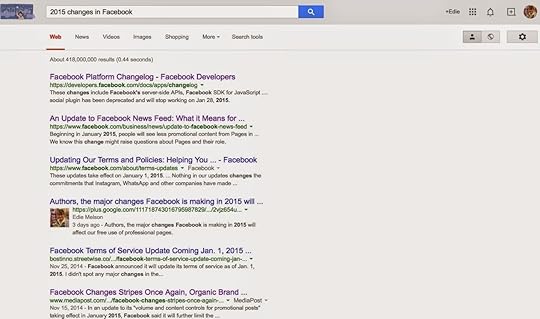

Warning, Brief Geek ContentTo understand how tagging can help your blog post get found (or lost in the sea of other blogs) you do have to understand a little about search engines. Search engines crawl the Internet searching and sorting all the information. In the simplest of terms, the more your information about and on your page matches up, the higher you rank.
Now, for those of you who truly understand search engines, you know this is way over simplifying the concept. Lots of other things come into count when your post is ranked, but tagging correctly will get you way on down the road!
Basics of Proper Labels & Tags1. Your labels/tags are usually a group of words, not just an individual word.
2. Always use your blog post title as one of your labels/tags.
3. Always us your name as one of your labels/tags.
4. If it’s different from your name, always include your blog title (for example, my blog title is The Write Conversation) as one of the labels/tags.
5. Come up with a couple of phrases that relate to the focus of your individual post.
Here are the labels/tags I used for this specific post:Edie Melson, The Write Conversation, Get Your Blog Found with Proper Labels & Tags, Blogging for Writers, Successful SEO, Social Media Monday
Don’t forget to join the conversation!Blessings,
Edie
TWEETABLESGet Your Blog Found with Proper Labels & Tags - #Blogging expert @EdieMelson shares how (Click to Tweet)
#Blogging expert @EdieMelson shares how to use Labels & Tags to improve your blog's SEO (Click to Tweet)
 I get the opportunity to evaluate a lot of blogs, from writers I meet with at conferences to clients. And they all have many of the same questions. One of the most common is what are some tips to help their blogs get found.
I get the opportunity to evaluate a lot of blogs, from writers I meet with at conferences to clients. And they all have many of the same questions. One of the most common is what are some tips to help their blogs get found. There’s one easy answer—proper tagging/labeling with each post.
When I give this answer, I get a lot of blank looks. This is one critical step a lot of blogger miss when posting a blog. Today, I’m going to give you the tools that make labeling/tagging a breeze and immediately help your blog come up in the search engine rankings.DefinitionsTags and Labels: these two mean the exact same things. It just depends on which blogging platform you use. Blogger: uses the term labels. Below is a screenshot of where you find the place to add LABELS on a blogger site.
 Where to find LABELS in BloggerWordPress: uses the term tags. Below is a screenshot of where you find the place to add TAGS on a WordPress site.
Where to find LABELS in BloggerWordPress: uses the term tags. Below is a screenshot of where you find the place to add TAGS on a WordPress site.
 Where to find TAGS in WordPress
Where to find TAGS in WordPressEven though successful tagging may seem like a complicated formula—one part magic and two parts luck—it’s more of a game and not nearly as difficult as you may think.
A keyword is like a label. It's a short way—although almost always more than one word in length—to state the purpose of your article. Articles can have several keyword groups or only one.
Targeted Labels/Tags make your posts easier to find when a topic is typed into a search engine. When your individual blog posts begin showing up in the top, it will drive up the visibility of your site.
The picture below is a screenshot of where my blog post about the 2015 Facebook changes showed up in a Google search. Just FYI, it's number 4 out of about 416,000,000. Not bad.


Warning, Brief Geek ContentTo understand how tagging can help your blog post get found (or lost in the sea of other blogs) you do have to understand a little about search engines. Search engines crawl the Internet searching and sorting all the information. In the simplest of terms, the more your information about and on your page matches up, the higher you rank.
Now, for those of you who truly understand search engines, you know this is way over simplifying the concept. Lots of other things come into count when your post is ranked, but tagging correctly will get you way on down the road!
Basics of Proper Labels & Tags1. Your labels/tags are usually a group of words, not just an individual word.
2. Always use your blog post title as one of your labels/tags.
3. Always us your name as one of your labels/tags.
4. If it’s different from your name, always include your blog title (for example, my blog title is The Write Conversation) as one of the labels/tags.
5. Come up with a couple of phrases that relate to the focus of your individual post.
Here are the labels/tags I used for this specific post:Edie Melson, The Write Conversation, Get Your Blog Found with Proper Labels & Tags, Blogging for Writers, Successful SEO, Social Media Monday
Don’t forget to join the conversation!Blessings,
Edie
TWEETABLESGet Your Blog Found with Proper Labels & Tags - #Blogging expert @EdieMelson shares how (Click to Tweet)
#Blogging expert @EdieMelson shares how to use Labels & Tags to improve your blog's SEO (Click to Tweet)
Published on April 20, 2015 01:00
April 19, 2015
Am I Hoarding My Writing Journey?
In this case, moreover, it is required of stewards that one be found trustworthy. I Corinthians 4:2
When I think of stewardship, I think about managing something that is owned by someone else. I don’t think of my own life in that context, and I especially don’t think of my writing life that way.
 I think of my writing life as a journey. And in a lot of ways that’s what it is.
I think of my writing life as a journey. And in a lot of ways that’s what it is.
Truthfully, though, it goes beyond just a journey. It’s also a set of experiences that make me who I am. The situations I’ve been a part of, the things I’ve learned along the way, even the people I’ve come into contact with, make up a very real part of who I am as a writer.
And I’ve come to realize that every aspect of this is a gift from God. It’s something He’s given me to make me into the person He knows I can be. Some of these experiences are filled with joy and others with great sorrow. Each one though, has added something to who I am as a person and as a writer.
What if these experiences aren’t just for me?
I’ve decided that they aren’t just for me. I do not believe God’s given me this abundance to draw on—to fuel and direct my creative endeavors—to have me squander and hoard them only for my on benefit. I believe He expects me to share my experiences with others and allow them to learn through what He’s been showing me.
So instead of hoarding my writing journey, I’m going to share it. Letting those around me see the good, the bad, and yes even the ugly. I'm going to trust that God has a bigger purpose than just me. I'm going to quit hiding away my experiences, letting them gather dust in the dim corners of my memory.
When I think of stewardship, I think about managing something that is owned by someone else. I don’t think of my own life in that context, and I especially don’t think of my writing life that way.
 I think of my writing life as a journey. And in a lot of ways that’s what it is.
I think of my writing life as a journey. And in a lot of ways that’s what it is. Truthfully, though, it goes beyond just a journey. It’s also a set of experiences that make me who I am. The situations I’ve been a part of, the things I’ve learned along the way, even the people I’ve come into contact with, make up a very real part of who I am as a writer.
And I’ve come to realize that every aspect of this is a gift from God. It’s something He’s given me to make me into the person He knows I can be. Some of these experiences are filled with joy and others with great sorrow. Each one though, has added something to who I am as a person and as a writer.
What if these experiences aren’t just for me?
I’ve decided that they aren’t just for me. I do not believe God’s given me this abundance to draw on—to fuel and direct my creative endeavors—to have me squander and hoard them only for my on benefit. I believe He expects me to share my experiences with others and allow them to learn through what He’s been showing me.
So instead of hoarding my writing journey, I’m going to share it. Letting those around me see the good, the bad, and yes even the ugly. I'm going to trust that God has a bigger purpose than just me. I'm going to quit hiding away my experiences, letting them gather dust in the dim corners of my memory.
Published on April 19, 2015 01:00
April 18, 2015
The Art of Seeing—A Writer's Strength
The art of seeing.
At first this concept may seem far removed from the craft of writing. But I think the two are intertwined. The writers who touch me the deepest are those who notice things others do not.
How do you strengthen your visual sense and translate what you see into words?
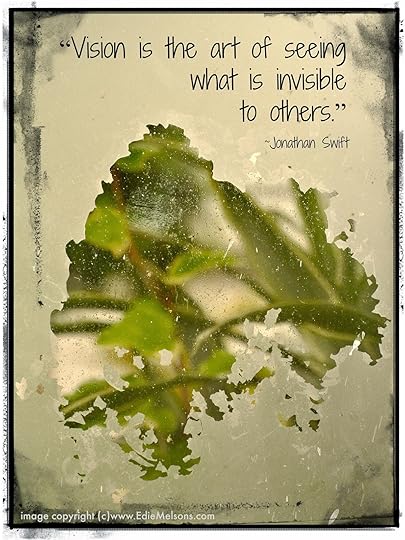 "Vision is the art of seeing what is invisible to others." ~Jonathan SwiftShare your thoughts in the comment section below.
"Vision is the art of seeing what is invisible to others." ~Jonathan SwiftShare your thoughts in the comment section below.
I also invite you to use this image any way you like online. Post it to your blog, share it on Facebook, Twitter, Pinterest, anywhere you'd like. All I ask is that you keep it intact, with my website watermark visible.
Don't forget to join the conversation!Blessings,
Edie
At first this concept may seem far removed from the craft of writing. But I think the two are intertwined. The writers who touch me the deepest are those who notice things others do not.
How do you strengthen your visual sense and translate what you see into words?
 "Vision is the art of seeing what is invisible to others." ~Jonathan SwiftShare your thoughts in the comment section below.
"Vision is the art of seeing what is invisible to others." ~Jonathan SwiftShare your thoughts in the comment section below.I also invite you to use this image any way you like online. Post it to your blog, share it on Facebook, Twitter, Pinterest, anywhere you'd like. All I ask is that you keep it intact, with my website watermark visible.
Don't forget to join the conversation!Blessings,
Edie
Published on April 18, 2015 01:00



